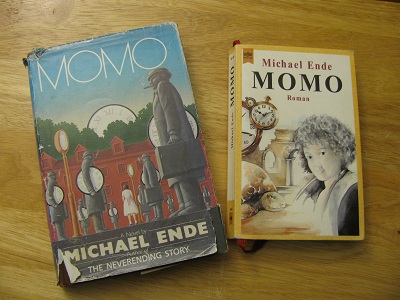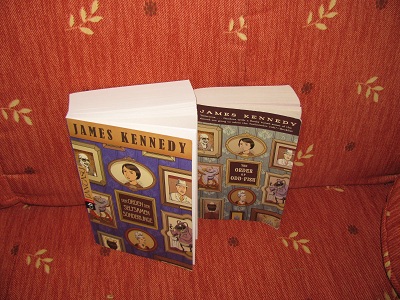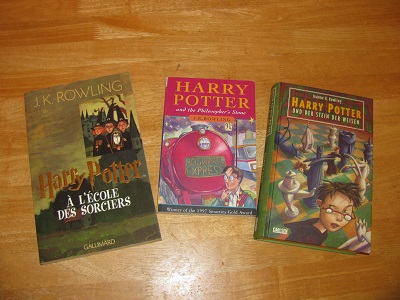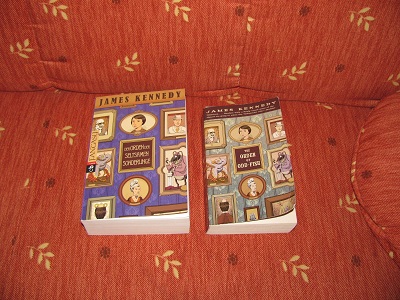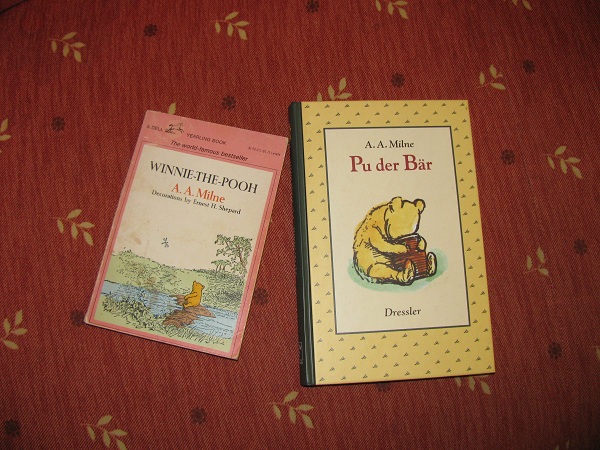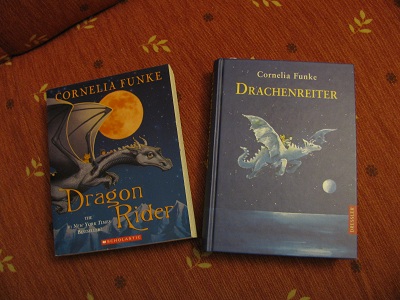Sonderling Sunday – Message from Jo’s Father
It’s time for Sonderling Sunday! That time of the week when I play with language by looking at the German translation of children’s books.
Today, we’re continuing in the most Sonder Book of them all, Der Orden der Seltsamen Sonderlinge, otherwise known as The Order of Odd-Fish, by James Kennedy.
Last time, we left off on page 284, Seite 360, in the middle of Chapter Twenty-One. Jo had been exploring in the library and found an interesting manuscript.
“Her heart bolted.” = Ihr Herz hämmerte.
Who knows when you might need to know how to say this sentence?
“It was crazy, impossible.”
= Das war verrückt, schier unmöglich.
“quickly scrawled” = hastig hingeworfen
“burning and blooming like a fiery garden”
= glühten und blühten wie ein wilder Garten.
(“glowed and bloomed like a wild garden”)
“Jo got down to it.”
= Jo stürzte sich in die Arbeit.
“Hours passed.”
= Stunden vergingen
“percolating coffeepot” = brodelnde Kaffeemaschine
“dense” = begriffsstutzig
I like this word:
“jewelry box” = Schmuckkassette
“translation”
= entschlüsselten Text
(“decrypted text”)
“translating rapidly and wildly”
= dekodierte den Text schnell und wie im Fieber
(“decoded the text quickly and like in a fever”)
“dishonor” = Schande
“invincible” = unbesiegbar
“positively angry” = eindeutig wütend
“doorstep” = Türschwelle
“traditional insults” = traditionelle Beleidigungen
I dare you to think of a use for this sentence:
“When I leave, may a thousand wild pigs overrun it and defile it with enthusiastic snorts.”
= Wenn ich es verlasse, warden tausend Wildschweine es überrennen und mit ihrem lauten Schnauben schänden
“defilement” = Schändung
“trampled into gruel” = zu Brei zertrampelt warden
A good phrase to know:
“hearty slurps” = lautem Schmatzen
And the translator missed a line here! In English, Fiona says “So be it,” and Jo answers “So be it.” In German, only Fiona says So sei es and the line with Jo’s response is left out completely.
And here’s a sentence with a Sonderword:
“It was clear she wasn’t impressed.”
= Sie war ganz offensichtlich nicht sonderlich beeindruckt.
(“She was completely obviously not especially impressed.”)
So, I fondly hope I leave your thoughts glühten und blühten wie ein wilder Garten. Please, enjoy some lautem Schmatzen tonight in honor of Sonderling Sunday!

